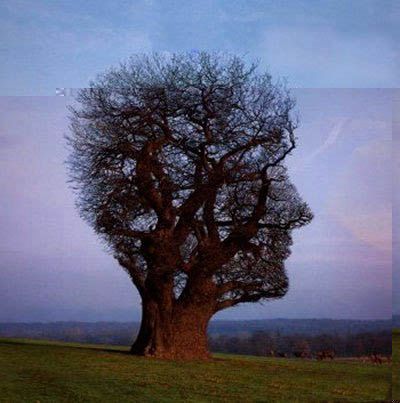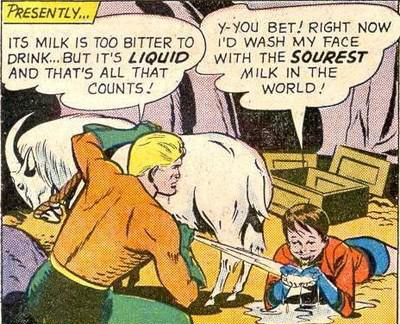Amidst all the incredible indie games I've discovered recently; or during my playthroughs of Final Fantasy IX and Chrono Trigger earlier this year; or after my summer streak of completing surprisingly awesome Tomb Raider: Anniversary, polished SW: Republic Commando, superb Riddick: Escape from Butcher's Bay, & dynamic Starcraft 2 terran campaign; at one point or another I started thinking about what makes a game truly great for me.
All games should be able to immerse the player. I love a good RPG (and as far as Baldur's Gate 2, Planescape: Torment or Witcher go, the immersion factor was off the scales) but most of the time I want to be immersed in a game world without having to read a whole book via NPC dialogues. This is where the design combined with refined and subtle mechanics has to shine.
To immerse the players, a game needs to tackle their imagination. There obviously isn't just one way of accomplishing this. The problem is most gamers do not need or expect that kind of polish in games. It's same with movies and books. When something is new, unrecognizable or hard to connect with a previous experience, depth isn't all that much of an issue - it becomes one later on. I see it like this: the person immersing and interacting with the given world is actually seeking the truth of that world. The more that world is true to itself and the more it makes sense in its own invented confines, the more thorough the immersion will be. As the person (gamer, reader, watcher) consumes more and more products/art, he begins to recognize patterns and a lot of what-if questions get answered. He becomes interested in different layers of the same subject matter, or interested in different issues completely. This is when the 'lies' and flaws of a given fictional world get more visible, making the immersion less magical and in the end - less enjoyable. Some games pass the test , and some don't.
Now, people who label games as entertainment and nothing more (as if it was a ride on a rollercoaster) are basically trying to define art. It can't be done. Writing, drawing or any kind of creative force put into motion is entirely subjective and can't be bounded by any rules or regulations. If those rules exist though, their only purpose can be to help us understand that creative force, where it comes from, and help us use it to the fullest potential.
Because the core thing that makes any art great and beautiful is truth. That truth (beauty, greatness) comes from 'connecting the dots' in a way we didn't think possible, it comes from reading between the lines and seeing behind the picture, it comes from connecting with the artist on a level resonating with mutual understanding and love. In that sense, every little rock on every beach in the world, every ray of light falling shyly through a window, every contour of anything... can be beautiful. Can be art.
That being said, how can anybody claim games are not art when they evoke all of these emotions and inner reactions in so many people? When they often have such depth - forcing a person to rethink himself?
When they make you experience something extraordinary?

Here are some of the best indie games I've played - they accomplish all of the above very successfuly:
Cave Story (Pixel) - I discovered it a few months ago and it blew me away. It single-handedly made me fall in love with platformers again.
Machinarium + Samorost 1,2 (Amanita Design) ? The most beautiful adventure games since the Syberia series.
Braid (Number None) - Brought retro platforming back to mainstream, I love it.
Glum Buster (CosMind) - It does so much with so little. Very intriguing and magical.
Talesworth Adventure (MrJinx) - This flash game is being released in episodes and everything about it rocks.
Give Up, Robot (Matt Thorson) - Best grappling-hook game since 1988. And the music kicks major 455.
They need to be fed (Jesse Venbrux) - This inovative platformer does everything right.
VVVVVV (Terry Cavanagh) - If nostalgia hits you whenever you hear '8-bit platforming', you have to try this. Also try 'Don't look back' by the same guy.
World of Goo (2D Boy) - Clever, quirky, hipnotizing.
Defense Grid: The Awakening (Hidden Path Entertainment) - Perfect tower defense game.
Plants vs Zombies (Popcap) - Best casual game ever.
Trine 1,2 (Frozenbyte) - Somebody liked Lost Vikings too!
(Super) Meat Boy (Team Meat) - I finished the flash version and can't wait for the sequel.
Knytt Stories (Nifflas) & Untitled Story (YMM) - Perfect for rainy afternoons.
Noitu Love 2 (Konjak) - I'm hooked!
Puzzle Dimension (Doctor Entertainment) - Unevenly difficult + a lot of trial and error in the later stages but it's still one of the best puzzle games since the Incredible Machine and Bumpy.
Aquaria (Bit Blot) - Underwater exploration, intriguing magic system, the soundtrack, the visuals; Loom meets Commander Keen. Awesome!
My non-indie all-time favorites (overall quality multiplied by nostalgia factor):
Heart of Darkness, Planescape: Torment, Monkey Island, Rune, NFS Porsche, Project IGI, Airfix Dogfighter, Super Mario 64, Startopia, Psychonauts, Chrono Trigger, Syberia, Commander Keen IV, Heroes Of Might and Magic III, Witcher, Portal, Guild Wars, Final Fantasy IX, Tomb Raider: Anniversary, Bionic Commando Rearmed, Okami.









Log in to comment